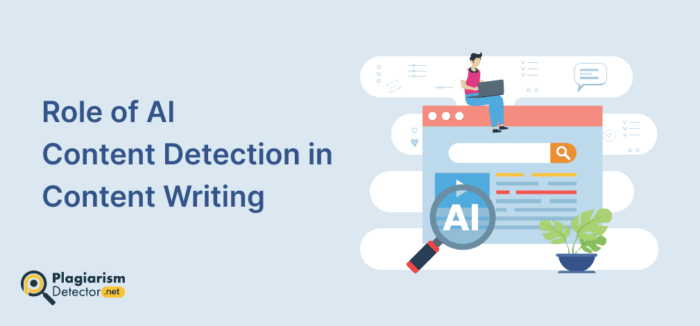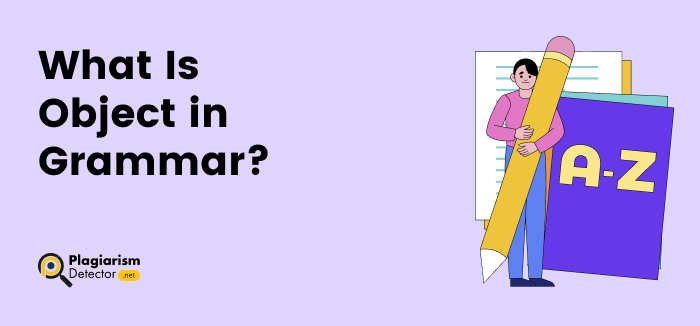Role of AI Content Detection in Content Writing

Did you know that a staggering 30% to 50% of content produced nowadays is generated with the help of Artificial Intelligence? This alarming disparity between authentic and copied work is towering over the future of workspaces where human-written (or produced) content is prevalent.
Ironically, AI was created to assist humans in getting ideas about engaging material; however, many people have started using such tools to create entire content. Despite its substantial use in other fields, AI is discouraged and penalized professionally and academically.
This blog will help you understand how AI content detectors play a significant role in influencing the competitive market, where copied work has become indistinguishable from originally produced.
Rise of AI in Content Creation
There is no denying that AI content is becoming increasingly relevant in today’s content-heavy digital landscape. With the advent of AI assistants, which are easily accessible to a broader audience, automated content has become a liability. AI is surging in the market as a significant tool for content creation by stepping into the roles of fully operational writing assistants.
More than multimedia, automated information is plaguing the written content field. Consequently, originality has become scarce. In the wake of such a situation, AI tools are essential to finding authenticity. With these portals, AI detection is possible.
What is AI Content Detection?
By definition, it refers to identifying whether information text or image is produced or influenced by artificial intelligence. AI detection tools can easily detect automated generated data by analyzing and comparing patterns, linguistic features, or metadata.
In the content writing realm, automated data is highly discouraged as it compromises quality and downplays the scarcity of authentic information in the market. AI-produced multimedia can be detected even without a tool; however, written information requires extensive research.
Role of AI Content Detection in Content Writing
The following are some of the most crucial aspects in which the role of AI content detection becomes extremely necessary in content writing. These factors define the impact of identifying automated information abundantly available on the Internet and distinguishing it from original content.
Encourages Creativity
In the digital marketplace, creativity is highly regarded. However, in the competitive market landscape, content creators want to produce data in bulk. This ultimately leads to using AI help, which backfires as automated information cannot tap the emotional side.
AI content detection prevents the unethical use of computer-generated material presented as human-written so that the creativity and effort of human writers are appreciated.
To ensure that the content is produced by a human, AI detectors perform necessary checks to decide whether it qualifies as human-produced.
Provides Assistance to Editors
Whether in the academic, professional, journalistic, or creative writing sphere, editors are bound to incorporate plagiarism checker AI to check whether submissions are original or contain automated information, ensuring that authentic content is received.
In industries where AI-produced content holds no value, the writer is supposed to create original ideas by introducing a human-like tone, creativity, and engagement.
Safeguards Intellectual Property
AI detection also prevents intellectual theft by other authors and creators, as their original data was produced from scratch. If the content is confirmed to be AI-generated, copyright claims can sue for scholarly exploitation. AI-generated content also devalues the information you add due to algorithm changes in the search engine that support original content instead of similar or copied ideas.
Time Efficient
AI content detection is quite time-efficient. It allows editors to run a check and generate a report quickly, saving valuable time. Writers and content managers also benefit from AI content detection and can make changes to avoid the monotonously mechanical tone.
Improving Content Quality
AI-generated content has a distinct tone that is quickly noticeable, as it lacks the nuance and creativity of human content writers. By using AI content detection, platforms can filter out automated information that isn’t engaging, relevant, and accurate. Businesses thrive when their websites, blogs, and articles are human-produced instead of machine-produced, as they boast user engagement and experience.
Assisting in Content Moderation
Since AI is in flux, content-heavy platforms can use AI content detection tools to monitor and filter computer-generated material. This prevents low-quality, misinformed data that could potentially ruin the brand’s image. AI content in such industries cannot create a one-on-one experience with users either, so taking help from AI isn’t going to take the content producer far.
Beware! ChatGPT vs. Google BARD: Unveiling AI-Language Models
Beware! Role of AI Content Detectors in Different Sectors
Verify Authentic Content
On social media platforms, spreading misinformation is easier than it sounds. Many users unintentionally pass off AI-generated content as authentic. The fabricated information often leads brands with significant social and political implications to lose their credibility.
AI content detection becomes cardinal in these situations to avoid such hassles. The detection process runs a style, structure, and linguistic patterns check to detect any monotonously mechanical tone that is an identifier of AI-generated material.
Limited Context Understanding
Automated information cannot explain the context in content writing like a human being. The data needs more nuance and sounds ambiguous due to copy-pasting and referencing existing content.
The “experience” feels disconnected from reality. Since the information has no real-world experience, the language becomes boring. In this regard, AI detection naturally gives creativity the space to thrive and stand out.
SEO Compliance
The textual and AI generated content mistakes hurt your SEO. It is especially crucial for SEO writers as it helps them ensure that search engines don’t discard their content for duplication, negatively affecting rankings in the digital market arena. These platforms prefer human-authored and well-researched content. The more your content is free of AI influence, the higher your SEO ranking.
Combats Excessive AI Use
The digital landscape is truly a competitive environment where AI is used heavily, as it saves time and money for companies that use AI instead of content writers. However, this leads to the inevitable presence of automated information that isn’t 100% accurate and lacks authenticity. AI content detection has since become necessary to ensure that the excessive use of AI is discouraged and the content-based market competition remains fair.




